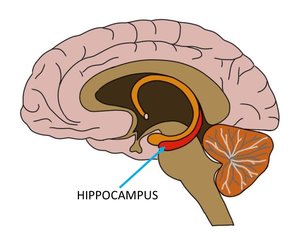|
SEARCH My Blog (Opens in new tab)
Your brain can regenerate cells, which means that it is able to replenish and repair your nerve highways to keep you cognitively fit.
A least, that's what some scientists have argued for the last 50 years. Before then, scientists were firm on the "fact" that we are born with all the brain cells that we would ever have. From that moment on they only die - resulting in our doddery old selves. In the 1960s some scientists claimed that they had evidence of new neurons in the brain. This was called neurogenesis. This is fantastic news, if true. However, studies since then have been ambivalent, especially many studies this decade. The 2019 Medscape Report "15 Studies That Challenged medical Dogma in 2019" caught my attention - in particular the first item. It brought stunning news. New neurons proliferate in the hippocampus as we age, even into the ninth decade of life, researchers demonstrated in this paper in Nature Medicine.
Scientists were able to deploy new state-of-the-art methods to review brain tissue from the hippocampus. Incredibly, they "identified thousands of immature neurons in the DG of neurologically healthy human subjects up to the ninth decade of life".
Here's what they concluded - "this process, called adult hippocampal neurogenesis (AHN), confers an unparalleled degree of plasticity to the entire hippocampal circuitry". Here's what they mean - your brain - in particular your hippocampus - can rewire itself and adapt itself to new circumstances throughout your life. This includes creating new pathways to compensate for biological and neurological degeneration. It also includes the ability to rewire around neural pathways which are causing you behavioural or psychological problems i.e. you can break habits, or break out of anxiety, for example.
This research also uncovered another spectacular finding. Where they found less neurogenesis they found higher rates of Alzheimer’s disease. They speculate that impaired neurogenesis may be an indicator of potential Alzheimer's disease.
Why should we be excited?
We should be very excited about the proof of neurogenesis because we know that exercise helps it.
So what would it do for us if we could improve neurogenesis in the hippocampus? Your hippocampus plays a vital role in regulating learning, memory encoding, memory consolidation, and spatial navigation. Healthy hippocampal activity is required for forming and reconstructing relational memory associated with flexible cognition and social behavior. Recently, it has been discovered that the hippocampus also plays an important role in sensory responses, such as vision, hearing, and touch. This means learning, memory, spatial navigation, social behaviour, vision, hearing and touch can all be maintained through exercise. By "maintained" I mean that the rate of decline can be slowed.
Exercise improves neurogenesis
When you exercise the greater flow of blood combined with the stimulated flow of cerebrospinal fluid literally washes away toxins - including beta-amyloid - and supplies nutrients for neurogenesis.
Types of exercise which place a positive stress on the heart increase the pulse volumes through our vascular system. This improves vascular elasticity. This means that you are keeping the blood vessels in your brain in top shape, and ensures all areas a serviced with a good flow. Interval training and strength training are two types of exercise which positively stress your heart. If you have diabetes, like me, then exercise keeps your blood moving better and reduces the coagulation of excess glucose in your capillaries. It's still going to happen, but less than if you do not exercise. When glucose clags up your capillaries the organisms which rely on that bloodflow die. This is why the hairs fall off your feet and lower legs, your hair greys faster, rashes take longer to heal, and brain cells die due to lack of nutrients. Exercise slows that rate of decline. Read my post: Exercising reduces arterial stiffness - reducing cardiovascular risks
If you are excited by the idea that you can maintain and improve your cognitive fitness by exercise, then I suggest that you get started with regular exercise.
If you already exercise then make sure you have appropriate interval training and strength training to improve your cardiovascular condition, plus solid endurance training. Doing this will support your ability to regenerate brain cells and to benefit from a slower decline in cognitive function.
Follow me on Quora for more health and fitness tips.
If you enjoyed this article >> Follow me Leave a comment >> Share it >> Stay healthy If you have any questions email me and I will get back to you. Latest: get your free customised fitness plan designed uniquely for you.
|
ChoicesSince I was diagnosed at 50 with Type 2 diabetes I've been learning how to do bone-building fitness training which lowers my age. You can too. It's your choice. Walter Categories
All
Archives
May 2023
|

 RSS Feed
RSS Feed



